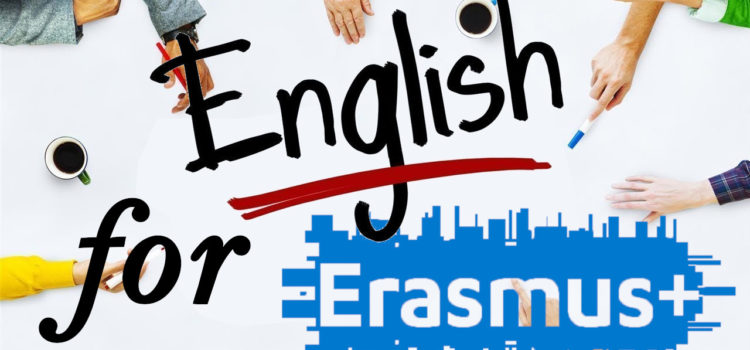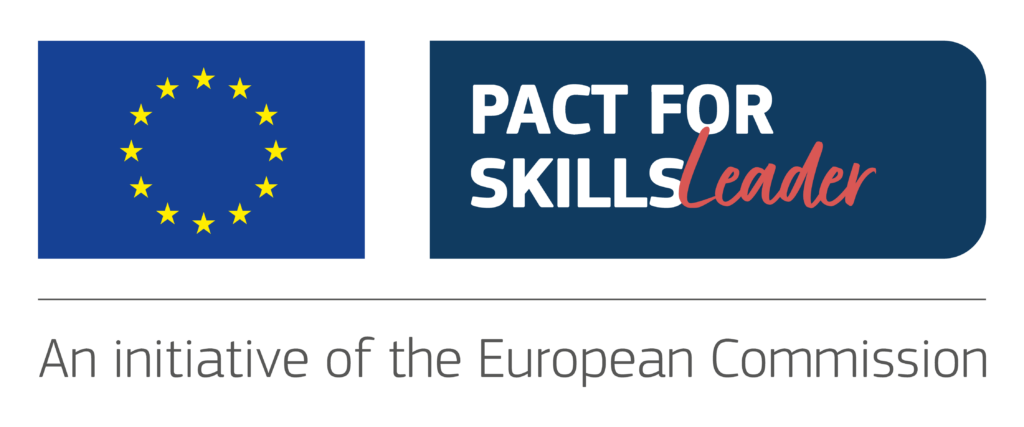English for Erasmus+
English for Erasmus+

English for Erasmus+
methodology
Are you writing or managing Erasmus+ applications but are worried about your English skills? Then this course is for you! In 7 days, you will learn how to deal with the English language in Erasmus+ applications, how to communicate with your partners effectively and how to report your project’s results to your National Agency.
Throughout this course, we’ll explore the fundamentals of English writing focused on the needs of an Erasmus project. All course activities are designed to help you write clearly and get top marks in your Erasmus+ application and final reports.
It leads to a Level 7 EQC Certificate, accompanied by a Europass Certicicate Supplement with 10 transferable ECVET points.
Course Objectives
At the end of this course you will be able to:
– read the Erasmus+ guide effectively
– use the Erasmus+ guide and other EU key literature for linguistic inspiration
– write with clarity
– edit yourself
– edit other people’s work
– write effective emails
– customize your writing style to the different documents of an Erasmus+ project life-cycle
– use ICT tools that make your writing life easier.
Participants from different European countries will have the opportunity to discuss their teaching experiences and consider potential future cooperation between their schools or organisations.
Methodology
The main aspect of the course is to promote collaboration between participants. Lessons will be held in our centre’s classrooms and computer lab, as well as outside. Our approach is to base the learning process on practical rather than theoretical knowledge. The course is designed on active learning methods and, at the end of the course, participants should be able to use the taught techniques effectively.
Preparation
Every participant will have to fill a questionnaire which helps the trainers to customize the course to better fit their needs.
Attendants will get instructions and material which will help them to be prepared for the courses needs.
Content
Course Contents Overview:
This course will introduce you to:
– the grant writing process
– where to look for linguistic inspiration
– how to write different parts of the Erasmus+ application
– how to edit yourself
– how to edit other people’s work
– how to write effective emails
– how to approach the interim and final reports
– ICT tools that will help you write an Erasmus+ application
Course participants will be given several practical exercises based on the theoretical background provided and their own teaching experiences.
Structured study visits
During the course, we also organize study visits to local schools. Normally, we discuss with participants their needs and we organize study visits to cover these needs. Depending on the group, we organize from a minimum of one to a maximum of five study visits. Popular study visits include:
- A special needs education school
- A school for adults from disadvantaged backgrounds
- A school with Roma mainstreaming classes
- Vocational secondary and post-secondary schools
- General primary and secondary schools
Each study visit is structured and accompanied by reflective activities. There is no extra cost for these study visits.
Outdoors learning
There are two outdoor learning activities: a gamified tour of the town and a visit to a local historical site. The onsite visit is accompanied by non-formal European history learning activities, as well as activities that link this history to the course topic. There is no extra cost for these activities.
Social programme
There is also an optional social programme for those interested. This programme may include an intercultural night, lunches and dinners at different restaurants, going out for a drink or coffee, or even an extra excursion – if there is time! These activities depend on participant needs and wants, and those participating in them will have to pay for what they choose to eat and drink. If there is an optional excursion, they will also have to pay van costs and any other expenses (e.g. museum tickets)
Follow up
The participants will get material which includes information about all the areas covered at the course, lesson plans, all the produced outcomes of the course, useful links and more.
The above material can be freely used by the participants at their school.
Target Group / Who is this course for
This course is for every teacher in primary, secondary, adult or vocational education and training.
Duration and cost
The duration of the course is 7 training days and the cost is:
- 490€ euro for grants received with the 2014-2020 Erasmus+
- 560€ for grants received with the 2021-2027 one
- The price for those without a grant is 560 €
If you have received a grant for a shorter or longer course, let us know! There are options available.
Don’t hesitate to contact us if you need further assistance!
Available Dates
- 2021
- 07.11.2021 – 13.11.2021
- 2022
- 13.02.2022 – 19.02.2022
- 2023
- 12.02.2023 – 18.02.2023
Location
Kalamata is a nice sea-side city in the south of Greece. It’s a quiet top golf destination and the Telegraph has included it in Europe’s 13 must-visit cities.
During your stay here you can stay wherever you want. However, we do propose accommodation. Which we can book for you and from which we offer free transfers to all course sites and activities.
Application assistance
Assistance is available. Don’t hesitate to ask us for help!
Fill now the pre-registration form
Pre-payments and course confirmation
We do not ask for money upfront. You can pay whenever you want including when you arrive here.
We have never canceled a course. We offer our courses only at our headquarters in Kalamata and only a few times per year. As a result, on top of being able to offer quality services all around, we do not have to fly trainers all over the globe and worry about local agents and the extra costs that these incur.




